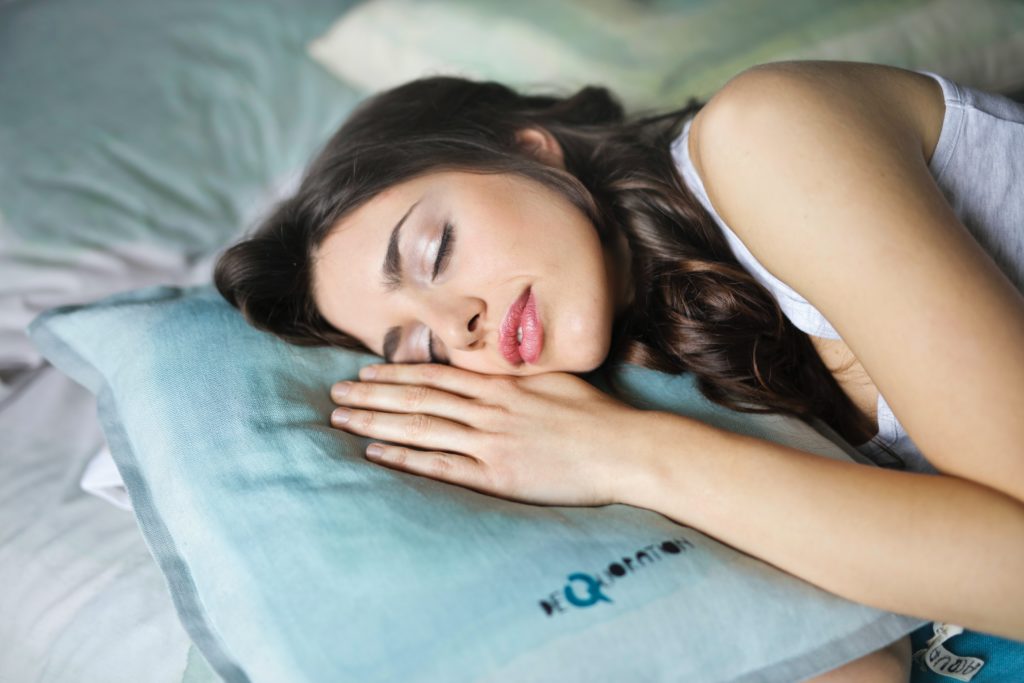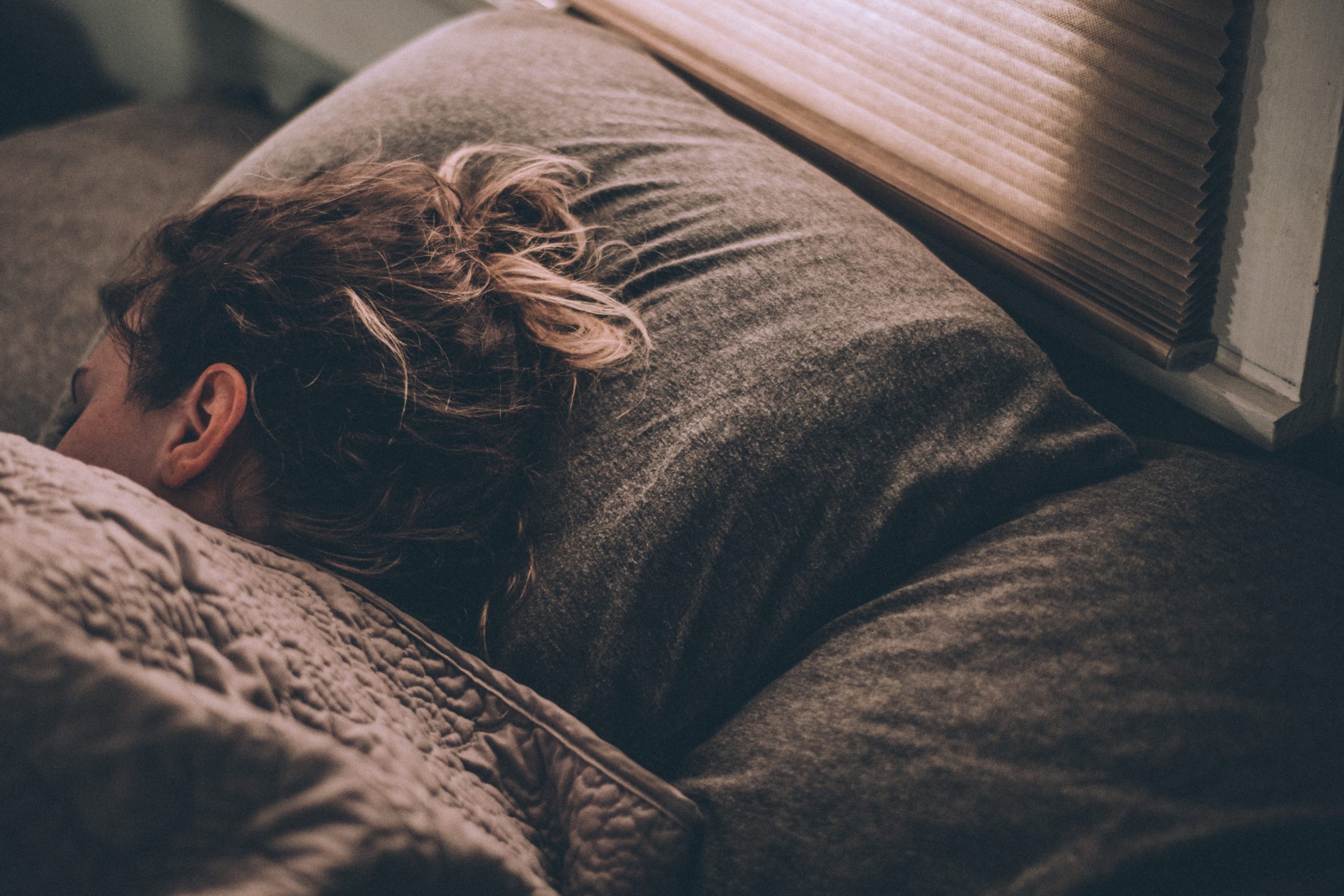It is often said that beauty sleep is a real thing, and it turns out there’s some truth to that statement. Quality sleep is essential for overall health and plays a vital role in maintaining healthy skin, hair, and nails.
The quality and amount of sleep you get each night can affect your skin’s appearance, hair’s strength and shine, and nails’ strength and growth.
While a good skincare routine, hair care regimen, and nail care habits are essential for maintaining their health, the benefits of sleep for skin, hair, and nails are significant.
In this article, we’ll explore the benefits of sleep for your skin, hair, and nails and provide tips for getting quality sleep to maintain your health.
The Importance of Sleep for Skin
Your skin is your body’s largest organ and plays a vital role in protecting your body from external factors such as pollution, UV radiation, and bacteria.
The skin also helps regulate body temperature and is a major player in your immune system. When you sleep, your body enters into a state of rest and repair, and this is especially true for your skin.
How Lack of Sleep Affects Skin Health
When you don’t get enough sleep, it can affect your skin’s health and appearance. Sleep deprivation can lead to the following skin issues:
- Dull Skin – Lack of sleep can make your skin appear dull and tired because your body’s repair and regeneration processes are disrupted.
- Dry Skin – Sleep deprivation can cause your skin to lose moisture, making it dry and flaky.
- Wrinkles and Fine Lines – Sleep deprivation can cause collagen production to decrease, leading to wrinkles and fine lines.
- Acne – Sleep deprivation can cause your skin to produce more oil, leading to clogged pores and acne.
1. The Benefits of Sleep for Skin Regeneration and Repair
During sleep, your body goes into repair mode, and this is especially true for your skin. The following are some ways in which sleep can benefit your skin:
- Increased Blood Flow – During sleep, your body increases blood flow to the skin, providing it with the necessary nutrients and oxygen for repair and regeneration.
- Collagen Production – Sleep is essential for collagen production, which helps keep your skin firm and plump.
- Reduced Inflammation – Sleep helps reduce inflammation, which can be beneficial for conditions such as eczema, psoriasis, and acne.
- Skin Barrier Function – Sleep is essential for maintaining the skin’s barrier function, which helps prevent moisture loss and protects against environmental damage.
The Role of Sleep in Reducing Inflammation and Promoting Healthy Skin
Sleep is crucial for reducing inflammation, which can be beneficial for various skin conditions. When you sleep, your body releases anti-inflammatory cytokines, which help reduce inflammation.
Chronic inflammation can damage your skin’s collagen and elastin, leading to premature aging. Sleep deprivation can increase inflammatory markers in your body, leading to skin issues such as acne, psoriasis, and eczema. Getting quality sleep can help reduce inflammation and promote healthy skin.
2. The Benefits of Sleep for Hair

Your hair is made up of a protein called keratin, and it grows from hair follicles on your scalp. Hair growth is a complex process that involves various factors, including genetics, hormones, diet, and stress levels. While sleep alone cannot make your hair grow, it plays a crucial role in maintaining its health and strength.
The Effects of Sleep on Hair Growth and Quality
The following are ways in which sleep can benefit your hair:
- Increased Blood Flow – During sleep, your body increases blood flow to the scalp, providing the necessary nutrients and oxygen for hair growth and repair.
- Reduced Hair Breakage – Sleep helps reduce stress levels, which can lead to less hair breakage. When you’re stressed, your body produces a hormone called cortisol, which can lead to hair breakage and hair loss.
- Stronger Hair – Sleep is crucial for maintaining healthy hair because it helps your body produce keratin, the protein that makes up your hair. Keratin is essential for strong, healthy hair.
- Shiny Hair – Sleep helps your body produce natural oils that make your hair appear shiny and healthy.
The Role of Sleep in Reducing Hair Breakage and Damage
Sleep plays a crucial role in reducing hair breakage and damage. When you sleep, your body goes into repair mode, and this includes repairing your hair. Sleep helps reduce stress levels, which can lead to less hair breakage. Stress can also lead to hair thinning and hair loss, so getting quality sleep can help maintain a healthy head of hair.
How Sleep Can Help Prevent Hair Loss
Hair loss is a common problem that can be caused by various factors such as genetics, hormonal imbalances, and medical conditions. While sleep alone cannot prevent hair loss, it can help maintain a healthy scalp and hair.
Getting quality sleep can help reduce stress levels, which can be a contributing factor to hair loss. Sleep can also help reduce inflammation, which can be beneficial for scalp health.
3. The Benefits of Sleep for Nails
Your nails are made up of a protein called keratin, which is also found in hair. Your nails grow from the nail matrix, which is located under the nail bed. The following are ways in which sleep can benefit your nails:
The Effects of Sleep on Nail Growth and Strength
- Increased Blood Flow – During sleep, your body increases blood flow to the nail matrix, providing the nutrients and oxygen for nail growth and repair.
- Stronger Nails – Sleep is crucial for maintaining healthy nails because it helps your body produce keratin, the protein that makes up your nails. Keratin is essential for strong, healthy nails.
- Healthy Cuticles – Sleep is crucial for maintaining healthy cuticles, which can prevent nail breakage and damage.
How Sleep Can Prevent Brittle Nails and Nail Breakage
Brittle nails are a common problem caused by various factors such as aging, medical conditions, and nutrient deficiencies. Sleep can help prevent brittle nails by providing your body with nutrients and oxygen for nail growth and repair. Getting quality sleep can also help reduce stress levels, which can be a contributing factor to nail breakage and damage.
The Role of Sleep in Promoting Healthy Cuticles
Your cuticles are the thin layer of skin at the base of your nails. They protect your nails from bacteria and other harmful substances. Sleep is crucial for maintaining healthy cuticles because it helps your body produce the necessary oils and nutrients for its health. Healthy cuticles can prevent nail breakage and damage, benefiting overall nail health.
Tips for Getting Quality Sleep for Healthy Skin, Hair, and Nails
- Establish a Regular Sleep Schedule – Try to go to bed and wake up at the same time each day. This can help regulate your body’s sleep-wake cycle and improve the quality of your sleep.
- Create a Sleep-Conducive Environment – Your sleep environment can affect the quality of your sleep. Make sure your bedroom is cool, dark, and quiet. Use comfortable bedding and pillows to promote comfort.
- Adopt Relaxation Techniques Before Bedtime – Practicing relaxation techniques such as deep breathing, meditation, or yoga before bedtime can help calm your mind and prepare your body for sleep.
Conclusion
Sleep is essential for maintaining healthy skin, hair, and nails. Quality sleep can help your body repair and regenerate overnight, leading to a more youthful and healthy appearance. Remember to establish a regular sleep schedule, create a sleep-conducive environment, and practice relaxation techniques before bedtime to get the best possible sleep for your skin, hair, and nails.
Frequently Asked Questions (FAQs) on Benefits of Sleep
1. Can lack of sleep cause hair loss?
Yes, lack of sleep can contribute to hair loss because it can increase stress levels, which can lead to hair breakage and thinning.
2. How many hours of sleep do I need to maintain healthy skin, hair, and nails?
The recommended amount of sleep for adults is 7-9 hours per night. However, everyone’s sleep needs are different, so it’s important to listen to your body and get the amount of sleep that feels right for you.
3. Can sleep improve the appearance of wrinkles?
Yes, sleep can improve the appearance of wrinkles by allowing your skin to repair and regenerate overnight. Lack of sleep can cause your skin to appear dull and tired, which can make wrinkles more noticeable.
4. How can I improve the quality of my sleep?
There are several ways to improve the quality of your sleep, including establishing a regular sleep schedule, creating a sleep-conducive environment, and practicing relaxation techniques before bedtime.
5. Can sleep improve the appearance of dark circles under my eyes?
Yes, sleep can improve the appearance of dark circles under your eyes by reducing inflammation and improving circulation. Getting enough sleep can also help prevent fluid from building up under your eyes, which can contribute to the appearance of dark circles.



